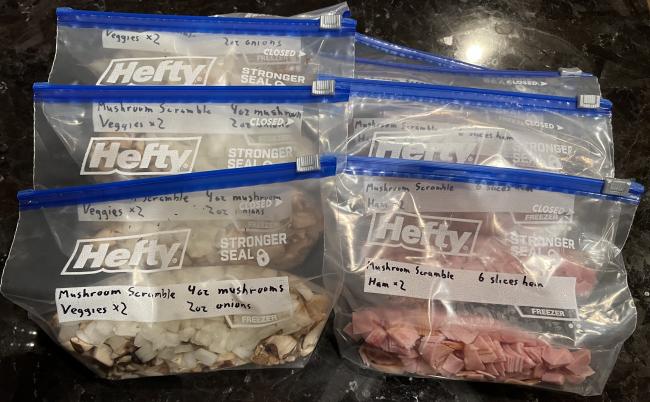Inflation everywhere. Any tips?
With limited education into macro-finance, and only news sources for input, how do we as “sane preppers” deal with this issue?
(Personally I don’t believe precious metals are a solution/plan for many reasons )
-
Comments (3)
-
Eric - June 24, 2023
The financial preparedness guide is a good starting point. Inflation makes financial preparedness more difficult/important but mostly doesn’t change the strategy.
https://theprepared.com/prepping-basics/guides/financial-planning/
More specifically, the main thing to focus on is categorizing how your money is spent on a monthly basis, and optimizing one or two of the largest categories.
One of our big expenses was cooling. We took some small steps to improve home energy efficiency, such as sealing cracks, covering a window that let a lot of light in, and raising the thermostat temperature by a few degrees.
Another big expense was food. When there’s a sale on something that we eat, we stock up so that we won’t need to pay full price later.
-
Eric - June 25, 2023
My main motivation is health but I think this will also help with cutting food expenses…
My mushroom scramble recipe is both healthy and delicious, and I’d like to make it more often. The downsides are lots of prep/cleanup time and ingredients sometimes spoiling before I can use them. I’m trying to solve both problems by making meal kits.
I just quickly made enough kits to prepare this recipe 4 times, and I only needed to clean the carving board once. I’ll freeze these until I’m ready to use them. Hopefully making a mushroom scramble will be much faster with the prep already done, and frozen kits are much less likely to spoil.
-
Anna WZ - June 28, 2023
Groceries are usually a major household expense and probably the easiest to reduce. Here are a few strategies I’ve been using:
order for pickup on an app at a cheap store (like Aldi or Walmart). That way you can see what it costs before you pickup. If you’re over budget see what you can cut.
fill in anything you can’t get from a different grocery store (or produce if you’re afraid it won’t be great). Go there FIRST. Check staples to see if they are cheaper and if they are, buy them there. Subtract that purchase from your budget. That’s what you have left to spend at the other grocery store.
Limit meat and stretch it. For example, add rice or beans to burritos to make meat go farther.
Plan a few easy meals for when you’re tired so you don’t resort to fast food.
Breakfast for dinner!
Check out depression era meals. My family LOVES “poor man’s dinner” (potatoes, hot dogs and onions and peppers ).
Good luck! Inflation is rough.
-
- News for the week of 2025-07-07 - 4 days ago
- Fun ways to teach kids outdoor/survival skills - 1 week ago
- News for the week of 2025-06-30 - 1 week ago
- News for the week of 2025-06-23 - 2 weeks ago
- News for the week of 2025-06-16 - 3 weeks ago
This forum is heavily moderated to keep things valuable to as many people as possible. Full community policies are here. The basics:
- 1. Be nice to each other.
- 2. Stay focused on prepping.
- 3. Avoid politics, religion, and other arguments.
- 4. No unfounded conspiracies, fake news, etc.
- 5. Debate ideas, not people.
